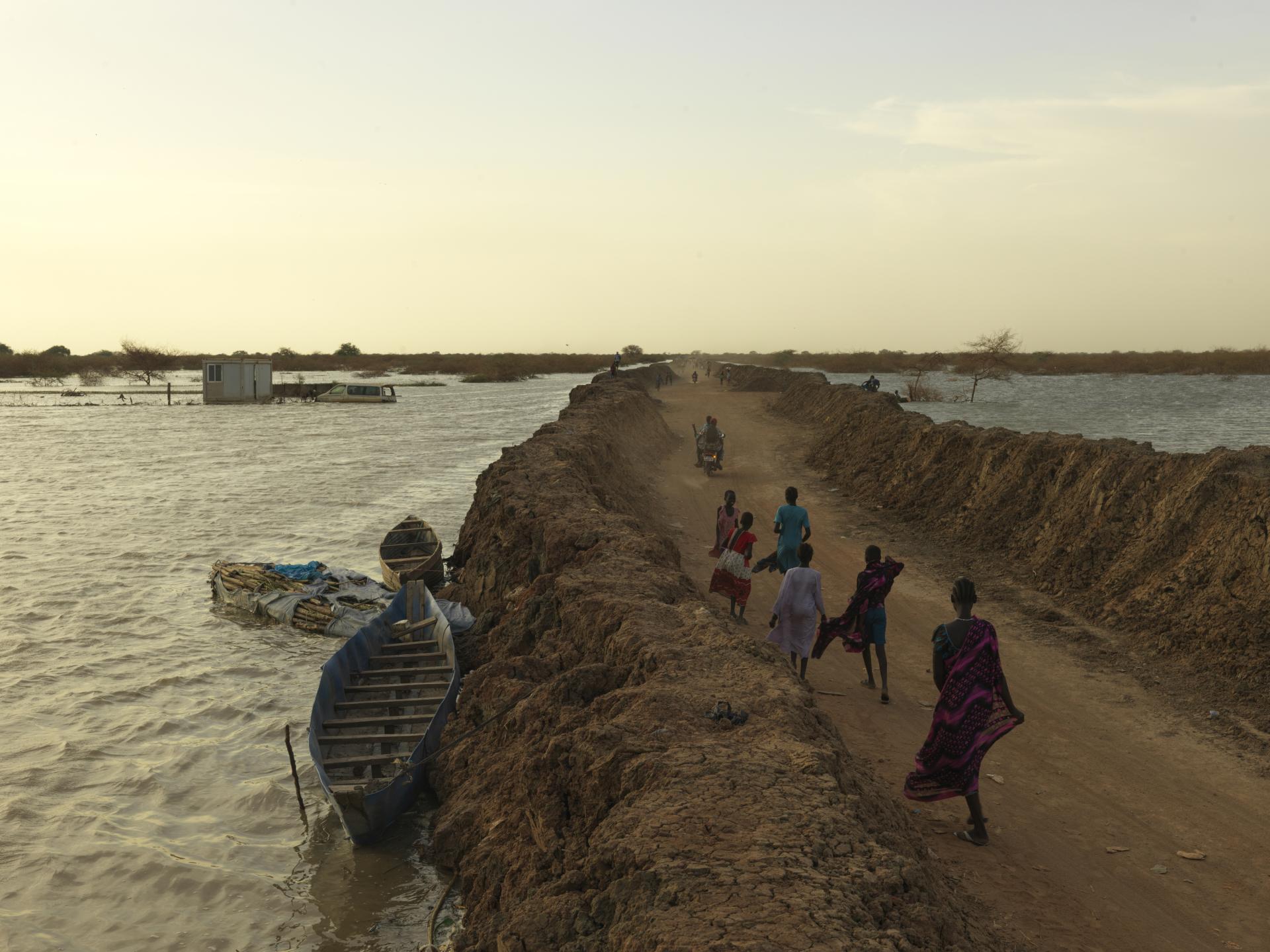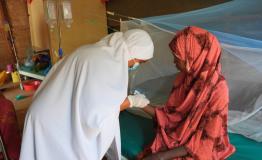Nairobi, 27 November 2024 – The worsening climate crisis will severely impact the health of millions of people in Eastern Africa, the General Director of Médecins Sans Frontières (MSF)/Doctors Without Borders, said Wednesday, ahead of a gathering of humanitarian health and climate experts in Nairobi.
“Climate change drives emerging infectious diseases and amplifies existing health issues, straining healthcare systems and humanitarian responses,” said Rolland Kaya, MSF’s General Director.
“Millions of people will be affected as extreme weather intensify malnutrition, water shortages, outbreaks of infectious diseases, and forced displacements, all of which exacerbate existing issues like poverty and conflict.”
MSF and other organisations engaged in tackling the health impacts of the climate crisis – including the Kenyan Ministry of Health, the United Nations and the International Committee of the Red Cross – will gather to discuss future climate scenarios and work on approaches to mitigate the impact.
In recent years, Eastern Africa has faced severe climate impacts, including intense droughts, unpredictable rainfall, and increased temperatures, leading to population displacement and infrastructure damage. The climate crisis, compounded by conflicts and other crises, strains humanitarian efforts, underscoring the need for innovative support strategies.
In Kenya, the patients and communities in places where MSF works are experiencing the health impacts of the climate emergency first-hand.
In recent years, Baringo and Turkana counties have experienced intense periods of drought followed by heavy rains. These extreme weather patterns have disrupted local agriculture, leading to widespread food insecurity. In Baringo an MSF intervention screened over 46,000 children for malnutrition in 2024 and found that 30 per cent suffered from acute malnutrition, while eight per cent were severely malnourished.
In neighbouring South Sudan, there is a looming health crisis as residents contend with floods and conflict.
“Not only is South Sudan one of the most vulnerable countries to climate change, but it also has the least capacity to adapt to its consequences like rising temperatures, intensified droughts and unpredictable rainy seasons,” said Dr Maria Guevara, MSF’s International Medical Secretary
Climate change drives emerging infectious diseases and amplifies existing health issues, straining healthcare systems and humanitarian responses,Rolland Kaya, MSF’s General Director
For MSF and other humanitarian organisations, the climate crisis has transformed the nature of emergency response, as extreme weather and the health issues it triggers require rapid, innovative solutions.
As seen across Kenya, South Sudan, and Somalia, the impacts of climate change are not only health crises but also contribute to displacement, resource competition, and, in some cases, armed conflict. MSF has adapted its operations to respond to the immediate health needs driven by climate change and the conflict.
It is essential for world leaders to recognise the health impacts of climate change and to provide funding that supports healthcare systems, sustainable water and food security initiatives, and climate-resilient infrastructure. Without immediate action, climate change will continue to drive health and humanitarian crises worldwide.
Without a bold commitment to climate adaptation and healthcare funding, the health crisis in Eastern Africa will worsen, putting millions of lives at risk. The situation across these countries should serve as a wake-up call, highlighting the urgent need for climate action that protects not only the environment

![Internally displaced people walk along the road between the dykes into the Bentiu IDP camp. These dykes are all that are preventing the entire camp from flooding. [Peter Caton] Internally displaced people walk along the road between the dykes into the Bentiu IDP camp](/sites/default/files/styles/card_half/public/msfimages/news/msb125506_medium.jpeg?itok=J03ypzQ2)

